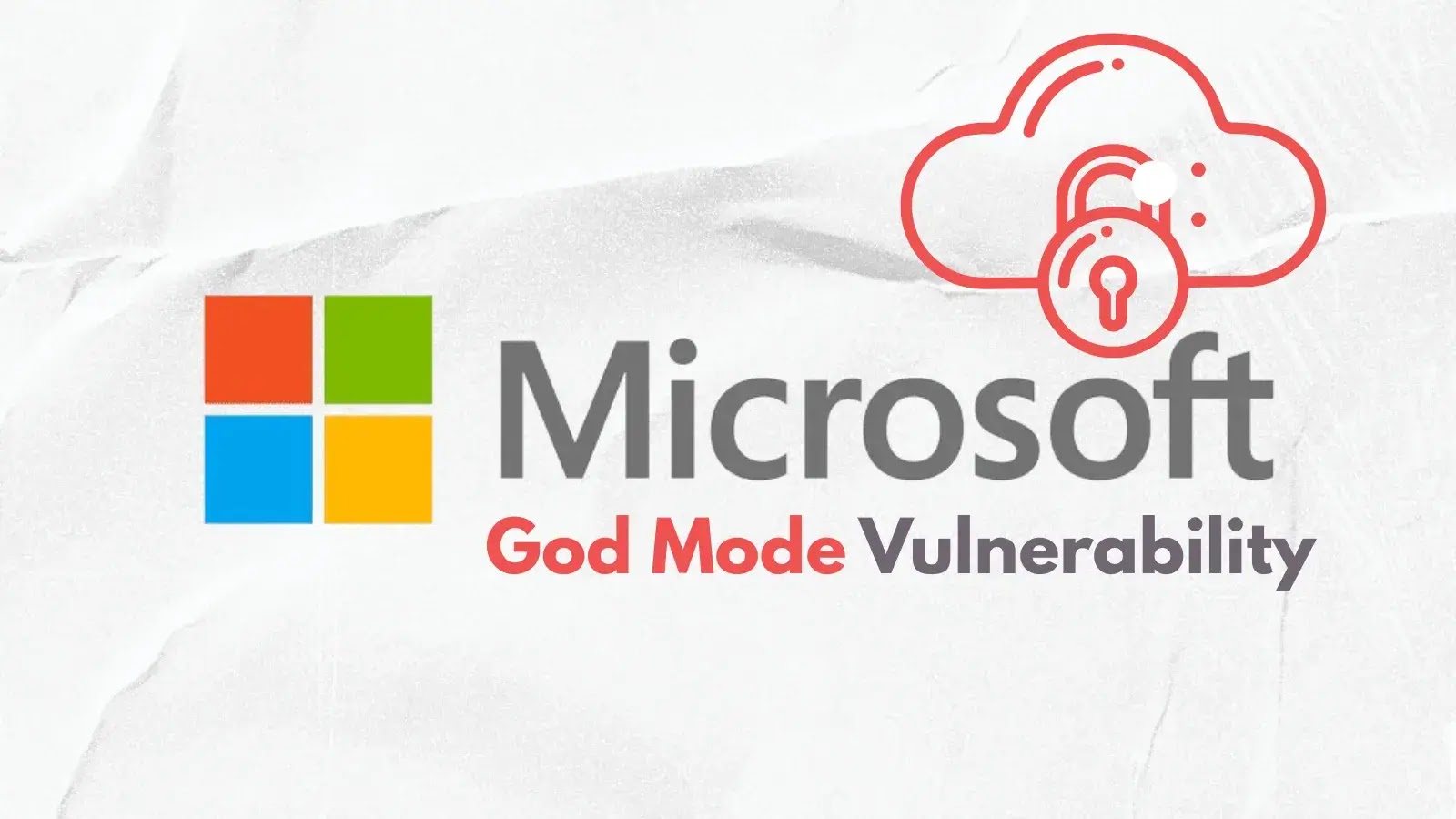God Mode Vulnerability Lets Attackers Access Any Resource in Microsoft Cloud Tenants
A recently disclosed flaw, tracked as CVE-2025-55241, allowed any attacker in possession of a single “Actor token” from a test or lab tenant to assume full administrative control over every Microsoft Entra ID (Azure AD) customer globally.
Security researcher Dirk-Jan Mollema revealed that a critical validation error in Microsoft’s token-based service communication could have turned a low-privilege service token into a universal master key. From multinational corporations to small startups, no tenant would have been safe.
Overview of the Vulnerability
Microsoft’s backend services use Actor tokens to authenticate and authorize communication between their own services.
| CVE Identifier | Affected Component | Impact | Exploit Prerequisites | CVSS 3.1 Score |
| CVE-2025-55241 | Microsoft Entra ID Actor tokens | Complete global admin control across all tenants | Possession of a valid Actor token from any tenant | 10.0 Critical |
Due to a failure in boundary checks, these tokens could be accepted across tenant boundaries.
An attacker who obtained such a token could read user profiles, group memberships, application permissions, BitLocker recovery keys, and more, without triggering any alarms or alerts.
With that same token, they could then spin up new Global Admin accounts or hijack existing ones, effectively inheriting the full privileges of any target tenant.
The entire exploit chain required only access to a test lab account, no zero-day injection, no sophisticated phishing, no multi-stage backdoor.
This flaw exposes the fundamental weakness of centralized authority models. Over the years, organizations have relied on the notion that vendor-supplied identity providers are inherently trustworthy.
Yet CVE-2025-55241 joins a string of catastrophic breaches in “trusted” platforms, from Okta’s broad support-system leak to Cisco’s hidden backdoor exposure.
The root problem is not buggy code alone but the very concept of absolute authority. As long as one system component or a single vendor holds the power to grant or revoke access globally, catastrophic failures remain inevitable.
Emerging cryptographic designs offer a way out: authorityless security. In such systems, no entity ever holds full power.
Instead, identity verification and authorization require distributed consensus among multiple independent nodes.
Cryptographic key fragments are never assembled in one place; they remain mathematically protected even if individual nodes are compromised.
Authorityless architectures promise a future where vulnerabilities like CVE-2025-55241 cannot be weaponized to achieve god-mode access.
Even if a flaw were found in one part of the system, attackers could not leverage it unilaterally.
Organizations and vendors should begin piloting distributed identity frameworks that eliminate single points of trust.
Find this Story Interesting! Follow us on LinkedIn and X to Get More Instant Updates.














Post Comment